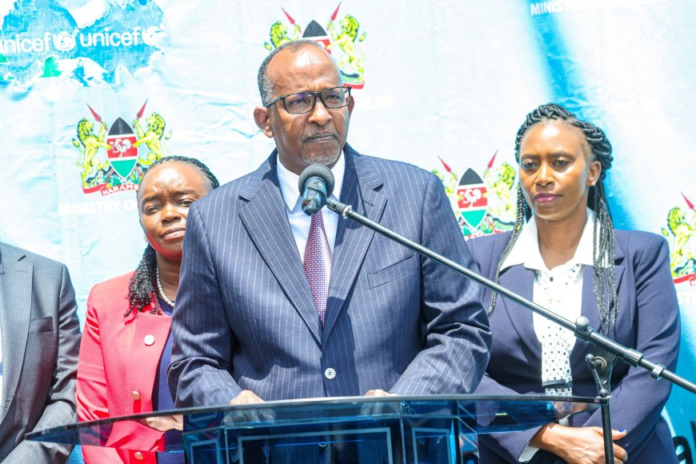
The Ministry of Health has confirmed the first cholera-related death in Nairobi County amid a rising outbreak that has now affected several regions across Kenya.
In a statement issued on Tuesday, April 8, Health Cabinet Secretary Aden Duale reported that as of Sunday, April 6, a total of 12 cholera cases had been identified within Nairobi. The affected sub-counties include Kasarani, Embakasi East, Embakasi Central, Roysambu, Kibra, and Dagoretti South—spanning both the eastern and western areas of the capital.
Countrywide, 97 cases have been recorded, with six resulting in death, marking a case fatality rate of 6.2 per cent. Apart from Nairobi, Migori and Kisumu counties have emerged as the other major hotspots.
“The Ministry of Health wishes to confirm a cholera outbreak currently affecting parts of the country. Cholera is a highly infectious waterborne disease caused by a bacterium known as Vibrio cholerae,” read part of the ministry’s statement.
According to the ministry, infection occurs when individuals consume food or water contaminated with the bacteria. Symptoms typically present between two hours and five days after exposure, and include profuse watery diarrhea, vomiting, muscle cramps, and severe dehydration.
“Cholera is a serious disease that can lead to rapid dehydration and potentially death if left untreated. Prompt medical attention is therefore important for persons suspected of being infected with cholera,” Duale emphasized.
Counties Most Affected
Migori County has reported 53 cases and one death, with Suna East, Suna West, Kuria East, and Kuria West being the most affected areas. Kisumu, meanwhile, has confirmed 32 cases and 4 fatalities, particularly in Nyando and Muhoroni sub-counties.
National Response Measures
In response to the outbreak, the Ministry of Health has partnered with county governments to implement swift containment measures. These include active surveillance, contact tracing, and the deployment of rapid response teams across the most affected areas.
Healthcare workers are also undergoing specialised training aimed at strengthening their response capacity. This training focuses on case detection, patient care, hygiene enforcement, and communication strategies to help manage the outbreak effectively.
Risk communication has also been intensified, with messages being relayed through community health volunteers, administrators, and various media platforms. Flyers, videos, and posters are being distributed to inform residents about preventive practices.
Field assessments uncovered widespread use of untreated water in several affected areas. In response, the government has launched household water treatment drives and stepped up enforcement of hygiene regulations and food safety guidelines.
Efforts are also underway to improve case management, which includes laboratory testing, medical treatment for those infected, and preventive care for close contacts.
Public Advisory
CS Duale cautioned the public against using over-the-counter remedies and urged anyone experiencing symptoms to seek immediate medical care. He further issued hygiene guidelines, calling on households to maintain cleanliness during food preparation and storage.
“People should always wash their hands before handling food, cook meals thoroughly, use clean water, and store food in hygienic containers,” he advised.
The ministry also called on the public to use clean water, maintain sanitation standards, and dispose of waste properly. Duale encouraged the installation of public handwashing stations equipped with clean water and soap or sanitizer.
He reassured Kenyans that the government will continue deploying rapid response teams and enhancing the capacity of healthcare personnel to deal with the outbreak swiftly and effectively




![SHA Suspends Dozens of Health Facilities Over Alleged Fraud [LIST]](https://citymirror.ke/wp-content/uploads/2024/12/image-14-218x150.png)

